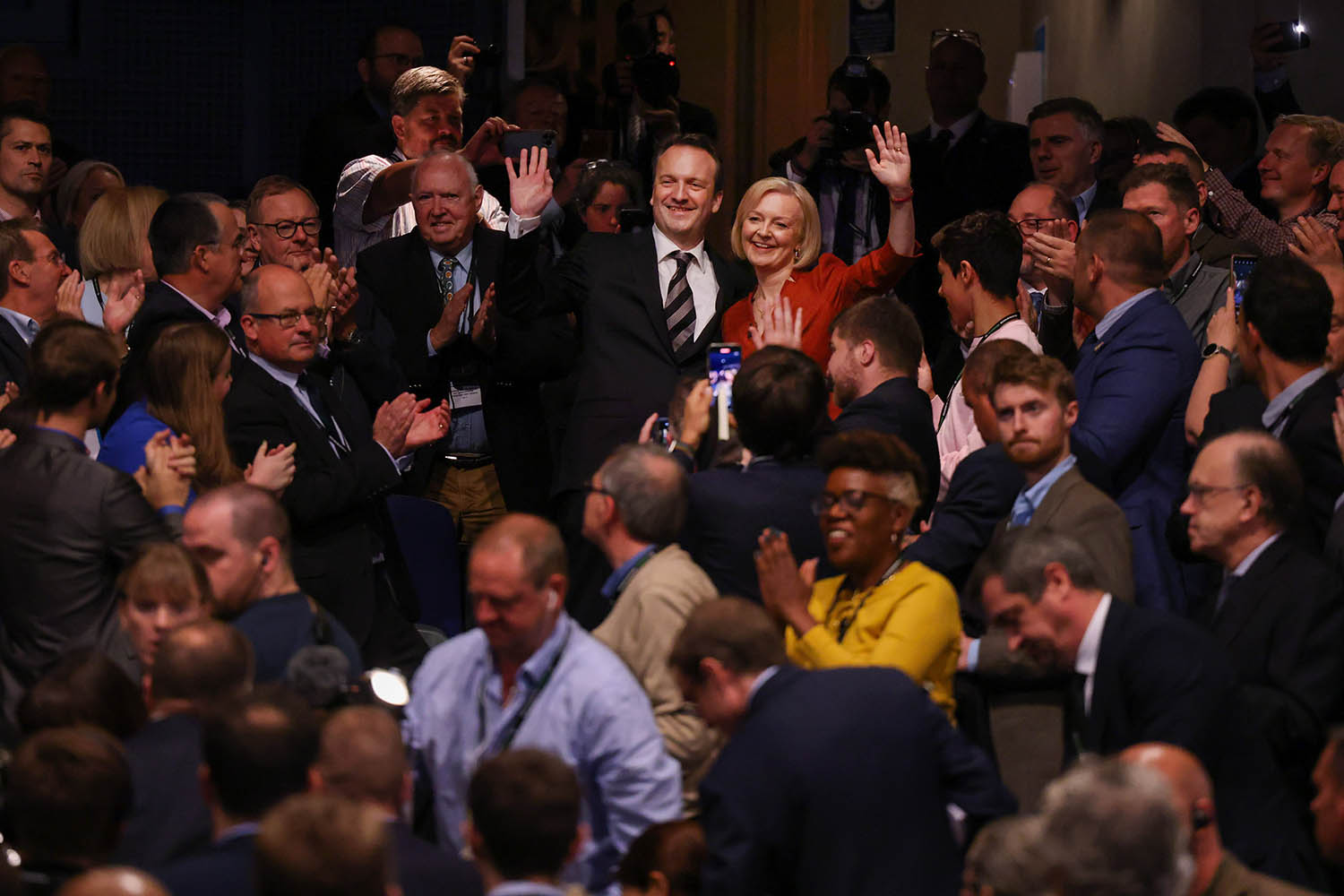
How the courts denied our request but agreed the public needs more information
Just over a year ago, we signed up Archie, my family’s tortoise, to be a member of the Conservative Party. We were out to make a point. The point was that the public had no way of knowing who was voting to choose Boris Johnson’s successor. And we weren’t sure the Conservatives had much idea either.
The Conservative Party had refused to tell us anything about the make-up of the electorate that, last summer, voted in Liz Truss to be Britain’s prime minister. And, even though the Government’s spy agency had discussed security issues with the Conservatives, they wouldn’t say what, if any, measures they took to make sure the election was safe and fair.
After we told the Conservatives that Archie had successfully signed as a Party member, we went back and asked again. Who’s voting? And how do you know they are who they say they are? There’s no reason that the Tories could have guessed Archie Harding was a tortoise, but they could have checked if an Archie lived at our address or existed on the electoral register.
They did neither. Instead, they said the electorate and the election was none of our business. They said registering the tortoise was a stunt (you think?) and that we were seeking publicity (ouch).
So we pressed the Conservatives to answer a set of questions about who was voting in the party leadership contest that was choosing Britain’s next prime minister. When they replied, our jaws hit the floor: the Conservative Party’s a private members club, they said. It doesn’t need to tell the press or public anything about the process to choose its leader; and the PM is not chosen by them, but appointed by the Sovereign.
We consulted lawyers. We thought that an election that involved 0.3 per cent of the electorate to choose the prime minister was undemocratic, but that wasn’t our case. As journalists our job is to make information available to the public. And we couldn’t think of information that was more obviously in the public interest than information about the safety and integrity of the election of the prime minister.
The Conservative Party was allowing people not on the UK’s electoral register to become members and vote in the leadership contest for £25. These included foreign nationals with no UK citizenship and people under the age of 18 (not to mention pets purporting to be people). So we thought it would be good for public confidence in the political system and national security to know, in broad terms, who they were: were they more men than women, more old than young, more South than North; how many were foreign or under-age?
But the lawyers told us the case wasn’t so easy. The Conservative Party is a private organisation. It’s not like an arm of the government or a public body that’s subject to Freedom of Information requests. It can tell us to take a running jump. And it had.
The only route through the courts was to make the argument in two parts: first, secure a Judicial Review; then prove we had a right to the information. Part one meant persuading the court that while the Conservative Party is a private organisation, it’s delivering a public function in running the election of the person who will be Britain’s prime minister. Next we had to persuade the court the party had violated the public’s rights to information by refusing to answer any of our questions.
We were encouraged by serious voices making the case for a more democratic and accountable process of choosing the prime minister. Jonathan Sumption, the former head of the Supreme Court, described the Conservative Party’s process of choosing the Prime Minister as a “constitutional travesty”. He wrote in The Sunday Times: “the final choice of our next prime minister is… being made by some 160,000 party members. This would be fine if we were talking about a local Rotary club. But political parties are not just private associations. They do not belong only to their members. In a parliamentary democracy, they have a vital constitutional role as intermediaries between the public and the state.” His view, we thought, made it very clear that the Conservative Party was serving a “public function” in running the contest between Liz Truss and Rishi Sunak to be the next PM.
William Hague, the former Conservative Party leader who introduced the membership voting system in 1998, chimed in to say the process was “discredited” and that there were “wider lessons for the conduct of 21st-century democracy”. If the conduct of our democracy was at stake then, again, it seemed obvious that this was a matter of public interest: the public had a right to know.
The Conservative Party’s argument that the Sovereign appointed the prime minister seemed a circuitous way round the obvious fact that party members elected Truss – particularly given she and Rishi Sunak said in the hustings and on social media that they were running to be the next Prime Minister.
We were tickled by the party’s hypocrisy: it had itself sought information about the membership of the Scottish National Party when the SNP was electing a successor to Nicola Sturgeon earlier this year. Craig Hoy, the Conservative MSP, had made our point: “The SNP must be open and transparent about the election procedure and the number of members entitled to vote, so that those members – and the Scottish public – have confidence in the integrity of the process to elect Scotland’s next First Minister.”
But we were warned the chances of winning at the High Court were slim. We were told the courts are understandably wary of politics. They don’t want to open the floodgates to other cases that might disrupt the work of political parties.
Sure enough, our request for a Judicial Review has been rejected. The consequence of this is that the public has no means of knowing anything about the people who elected Truss or whether the election was conducted safely or fairly. Nor is there any way of getting greater accountability or transparency from political parties in the future. Parties, the court has effectively said, can behave like private member’s clubs.
The judge in the High Court was Mr Justice Fordham, one of the country’s great experts on public law. And, while he rejected our application for a Judicial Review, he has issued a carefully considered and revealing judgment. One that has consequences both for Parliament and press freedom.
In it, he argues that the Conservative Party can claim its role is only to provide the information that advises the Sovereign as to who can command a majority in the House of Commons. The King – or Queen, as was – then appoints that person. And parliament can, albeit after the fact, reject the new PM. In the judge’s view, parliament’s role acts as a check on the process: “a constitutionally suitable and appropriate safeguard.” And he concludes that “it is the safeguard and accountability which render judicial review inapt and unnecessary”.
As I discovered in the course of the case, our public interest argument was “parasitic” on the public function one – i.e. the second lives off the first. Once the public function argument was thrown out, the case for the Conservative Party needing to provide information about the integrity of our democracy would never be heard.
But here’s the thing. The judge rejected the application for Judicial Review, but accepted the argument about the public interest. What mattered to us was not the intricacies of what’s justiciable, but what is – or should be – reportable.
On that, the Court was clear – and clearly on our side. For anyone who cares about press freedom and the public’s right to know, it sets out the case for less secrecy, more accountability.
The judge recognised a failure of information rights in the UK. He recognised Tortoise’s “right to know” argument – rights which have been recognised in Europe but not tested or proved in the UK. In fact, he was clear he would have supported a substantive hearing on those grounds.
The judge went further than we’d argued. He suggested that parliament might look to take responsibility for oversight of party elections of prime minister mid-term, which would ensure the public has a means of knowing who chooses the PM and how the process is run. The arrogance of the Conservative Party in refusing to provide this information is odd and self-defeating; political parties have an interest in public confidence. If they don’t change, as the judge suggests, parliament can step in.
And he rejected the Conservative Party’s argument that the case was historic and therefore irrelevant. It certainly hasn’t seemed distant history. Last month, Suella Braverman was sacked as Home Secretary and, in her farewell to Rishi Sunak, she pointed out how he owed his place as prime minister to her support, which saved him from having to run against Boris Johnson in a vote of Party members – a vote he would most likely have lost. .
Next year, the UK will go to the polls. Most likely, Keir Starmer will become prime minister. In the British system, this is unusual: political parties, more often than the people, usher the PM into No. 10. Six of the last ten Prime Ministers – John Major, Gordon Brown, Theresa May, Boris Johnson, Liz Truss and Rishi Sunak – have been first elected by their parties to be Prime Minister; three went on to win a public mandate at a General Election; three did not.
Archie, the tortoise, has made his point. Our point. For now, the process of choosing a prime minister mid-term is, as often as not, neither democratic nor accountable. Our political parties can choose to tell us nothing about the voters or the election. It’s none of our business, they say. They’re Rotary Clubs that occasionally choose the prime minister.
